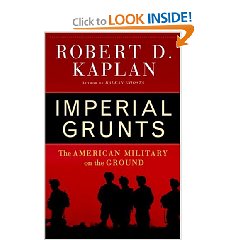I found this gem in the Tampa Airport bookstore and bought it for the title, not realizing that the author was the world-class professor that Larry Summers disrespected.
This is, easily, Nobel Prize material. The reflections of Professor West are extraordinary, and they are well-presented with a wealth of both names and carefully selected quotations from the works of others that make this book both a tour of the horizon, and a bright shining light on the topic of democracy and how to save the American democracy.
As I absorbed this superb material over the course of flying from Tampa to DC and into the evening, I felt that on the one hand, Professor West was truly gifted at singling out and embracing the best literary, religious, and musical talents, and that I was receiving, in the course of a single book, a course on thoughts of others that mattered to democracy. My other thought, once reminded of his dust-up with Larry Summers, was how extraordinarily courteous this author is, in identifying the very destructive tendencies of extremist Christianity, extremist Judaism, and extremist Islam. This is a man who is both innovative and polite.
A few notes from the margins of this heavily under-lined and annotated work….
1) There is marvelous deliberate aliteration throughout the book, with many pages having the resonance of poetry. This is gifted articulation and reflection, hand-crafted communication of the highest order. “Superb artistry of words” is my note on page 27.
2) Professor West is absolute correct to highlight the fact that America is built on genocide against the Native Americans, and slavery of the Africans, and remains in denial of these core realities. Then fast forward to America's support of 44 dictators, its virtual colonialism, its immoral capitalism, it schism between rich and all others–I am reminded by Professor West of Nelson Mandela, and write in the margins: America needs two “Truth and Reconciliation Commissions”–one for what we have done to our own Native Americans, Americans of African descent, and to the working poor, another for what we have done to the rest of the world.
3) Thoughout this book run the themes of prophetic or embracive Christianity, love versus materialism, nurturing versus imperialism. Most interesting to me is the consistency of thought between Professor West and that icon of the leadership literature, Margarent Wheatley. Both understand the extraordinary importance of dialog and openness and the need to share information and perspective, in sharp contrast to the ideologues in the White House that call General Anthony Zinni a traitor for questioning the false facts that led us into an unjust and prohibitively expensive war in Iraq. Dialog, not force, is the way to spread democracy.
4) On page 104 I have the annotation “THIS IS THE MESSAGE!” and “WOW!!!! If Karen Hughes wants to succeed as Undersecretary of State for Public Diplomacy, she has only to read this book and memorize page 104. Professor West is stunningly brilliant in both his assessment of America's vulnerabilities from its inherent hipocrasy, and in his evaluation of the faith-based democratic message that has real possibilties in the Middle East and elsewhere. Page 137 is also essential to Karen Hughes–Professor West is incisive in understanding that Western democracy has no chance in the Islamic world; that we must undermine the repressive autocratic clerics; and that we must help Islam modernize on its own terms–Islamic democracy will not look like Western democracy, but it can be democratic.
5) The author is just down-right superb in evaluating the Jewish condition, and the insanities of America's wasteful and counter-productive generosity toward extremist Jews who receive 33% of all our foreign aid, $500 per Israeli (against 10 cents a year for Africans). He is brilliantly coherent when he suggests that we should continue to spend these sums in the Middle East (Egypt gets 20% of our foreign aid) but put our money on the side of indigenous democratic movements, not the autocratic extremists on both the Arab and Israeli fronts.
6) Professor West gently slams Salman Rushdie and V. S. Naipaul while introducing the reader to the wealth of insight and passion in the literature from the African Islamic world.
7) The entire book, in its brilliance, coherence, and insightfulness, is a spanking of Larry Summers, one of Harvard's least qualified Presidents, but on page 189 ff the author addresses Summers directly, and his account of the encounters has the ring of truth. Tenured at Yale and Princeton as well as Harvard, with more publications to his credit than most of his peers, one puts down the book with appreciation for the author's condemnation of the sell-out of universities to greed and corporate grants, and one can easily choose to respect the author over his antagonist.
There are numerous other books I have reviewed here at Amazon that bear witness to Professor West's thoughtful and balanced critique of American imperialism and the loss of our democratic ideals here at home. Princeton is fortunate to have this great mind return to its busom, and one can only pity Harvard for violating its motto and allowing a white supremacist (who does not respect women either) to eviscerate their prophetic Christian and Black Studies faculty.
This is an absolutely grand piece of reflection, ably presented, with enormous respect for the views of others and very delicate manners in the discourse of disagreement. Very few books have aroused in me a passion such as this one has–Bonhoffer would say it is the passon of the black Church. I would say that this one man truly represents all that could “be” in the American democratic tradition. He merits our affectionate respect, embodiying as he does the thought that struck me early on in the book: life as religion, religion as life. In God We Trust, and damnation to those lawyers that seek to remove God from our Republic's identity. One can separate the church from the state, but one cannot separate religious faith from the foundation of democracy–it is as water is to cement, an essential ingredient for a lasting construct.









